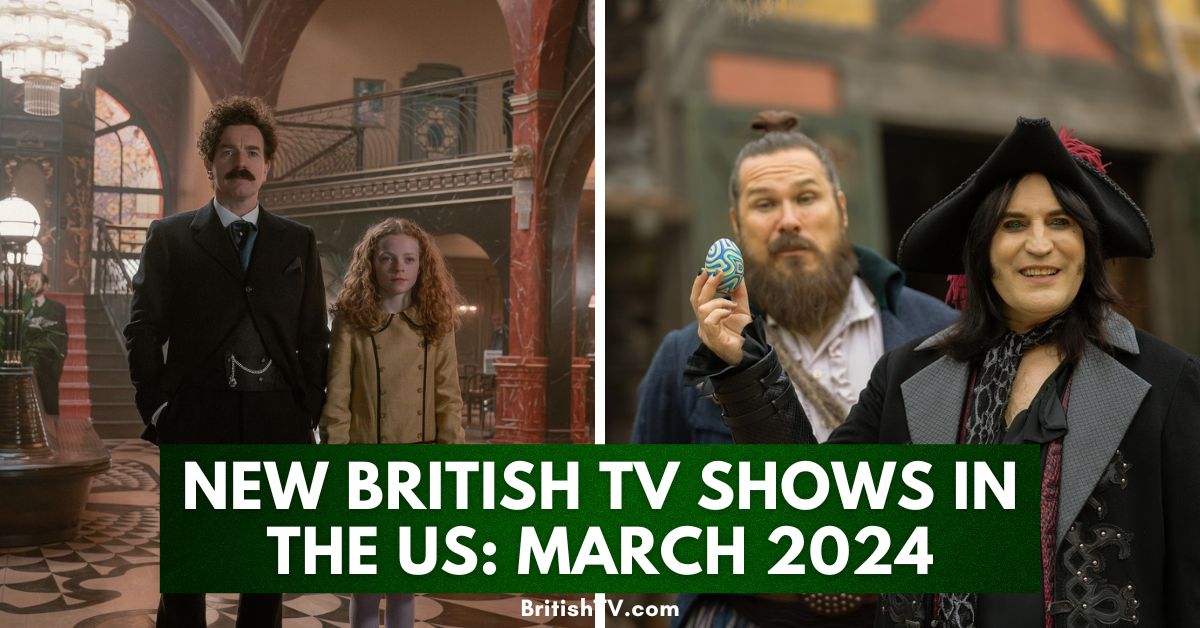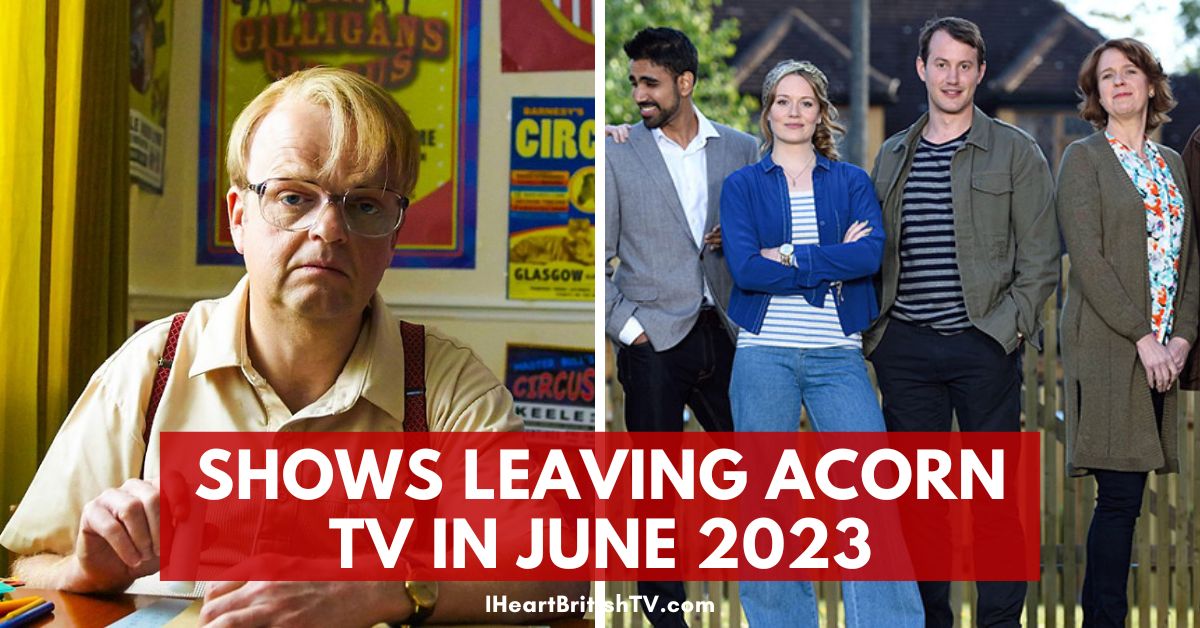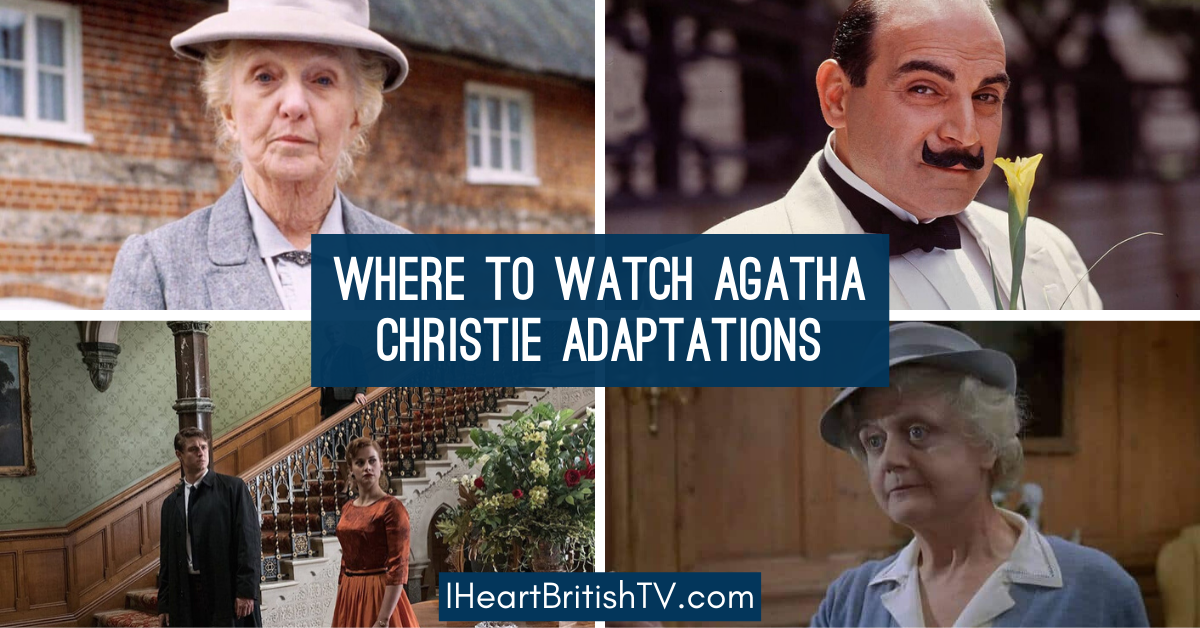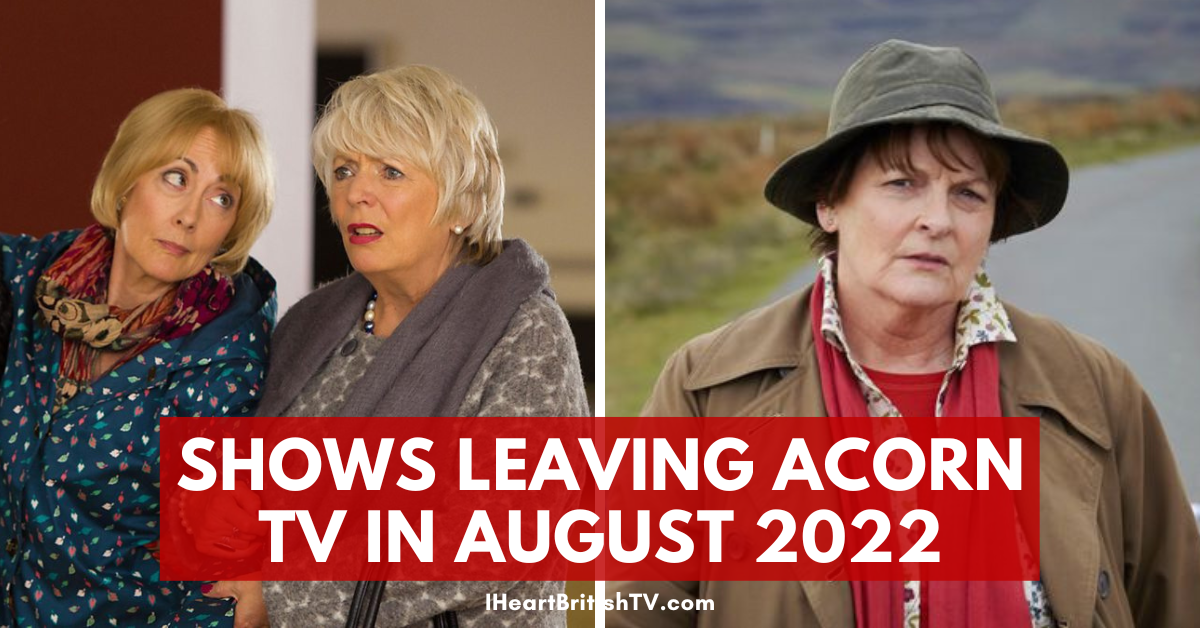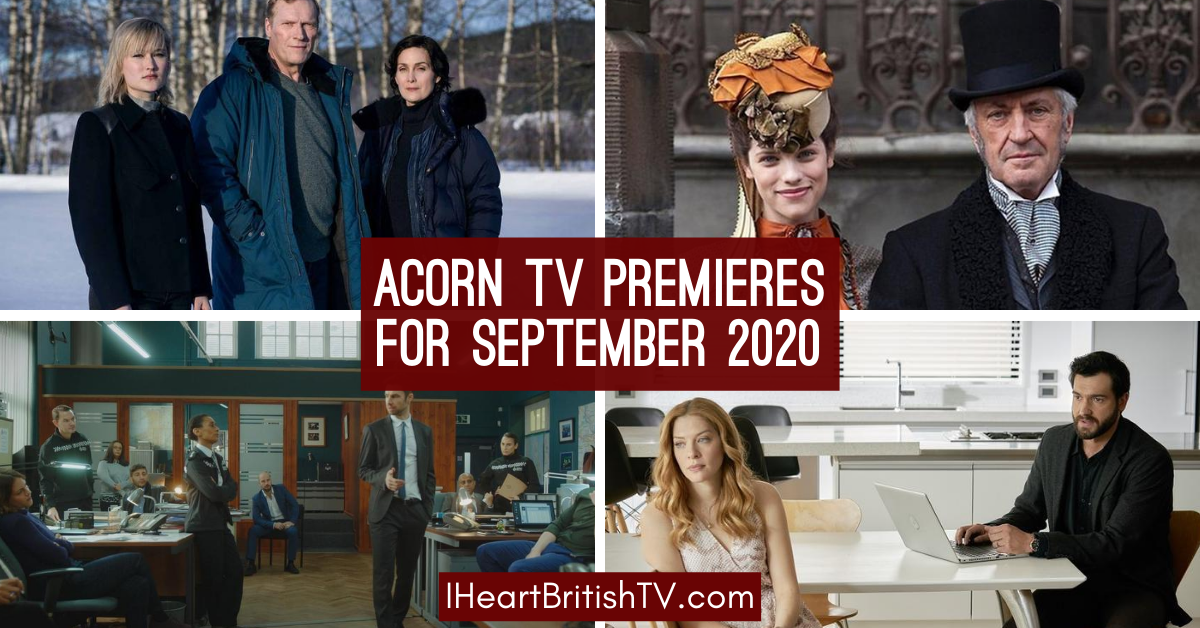Interview with Bertie Carvel of Dalgliesh
In some cases, we earn commissions from affiliate links in our posts.
Last Updated on November 3, 2021 by Stefanie Hutson
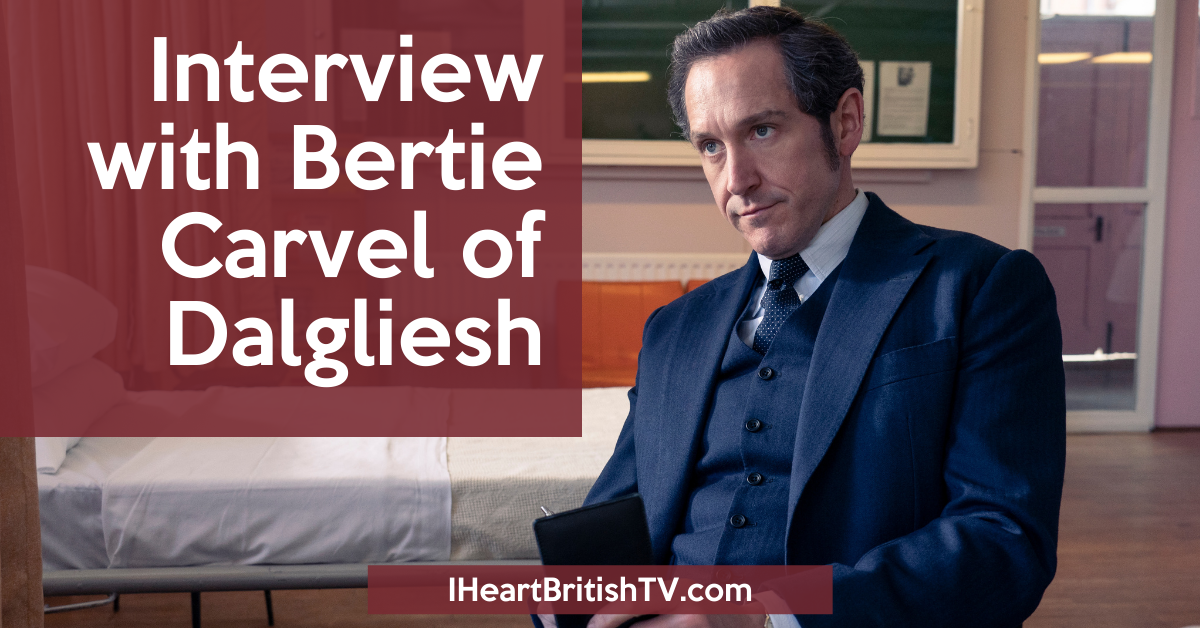
On November 1st, Acorn TV's latest original series, Dalgliesh, made its worldwide premiere. As far as we're concerned, this has been one of the most exciting premieres of the year, largely because there have been so few “classic” British mysteries of late.
And as much as we love the older Dalgliesh adaptations, it's great to see it being done again in a time where camera technology is so much better – and Bertie Carvel is fantastic in pretty much everything.
Recently, my co-editor David had a chance to chat briefly with Bertie Carvel about the upcoming series and his role in it. While they didn't get through all that many questions in the allotted time, you get the sense that Carvel is an actor with a lot going on upstairs. He anticipated and answered a lot of questions before David got to them, and his answers were long and interesting.
What is Dalgliesh About?
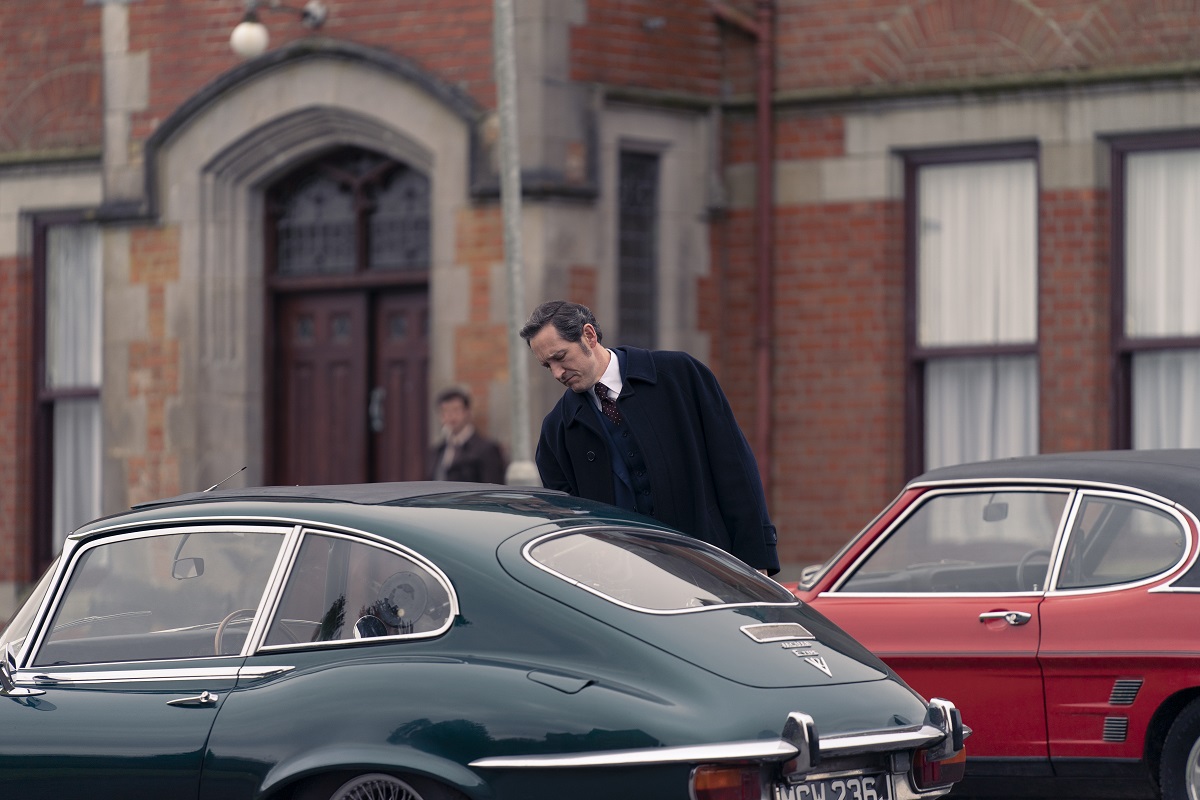
Dalgliesh is based on the classic Inspector Dalgliesh novels by Phyllis Dorothy James, Baroness James of Holland Park – otherwise known as P.D. James. Beginning in the 1960s, she crafted a series about an intensely private, poetry-writing detective at New Scotland Yard in London. He lives in a flat above the Thames, drives a Cooper Bristol (later, a Jaguar) and is often described as tall, dark, and handsome.
While the books begin in the 1960s, it's been announced that the new series will start in mid-1970s England, and will consist of three two-part films.
Want to learn more about Dalgliesh?
- Acorn TV Original Dalgliesh Trailer & Details
- PD James' Adam Dalgliesh Novels
- Acorn TV November 2021 Lineup (including Dalgliesh)
Interview with Bertie Carvel of Dalgliesh
Editor's note: Rather than offer just a few quotes, we've fully transcribed the interview below. However, please note that we've removed most of the “erm” and “ah” interjections, and there were a few spots where it was hard to make out exactly what was said over the sometimes-spotty connection. Please blame any weird bits on us/technology rather than Mr. Carvel.
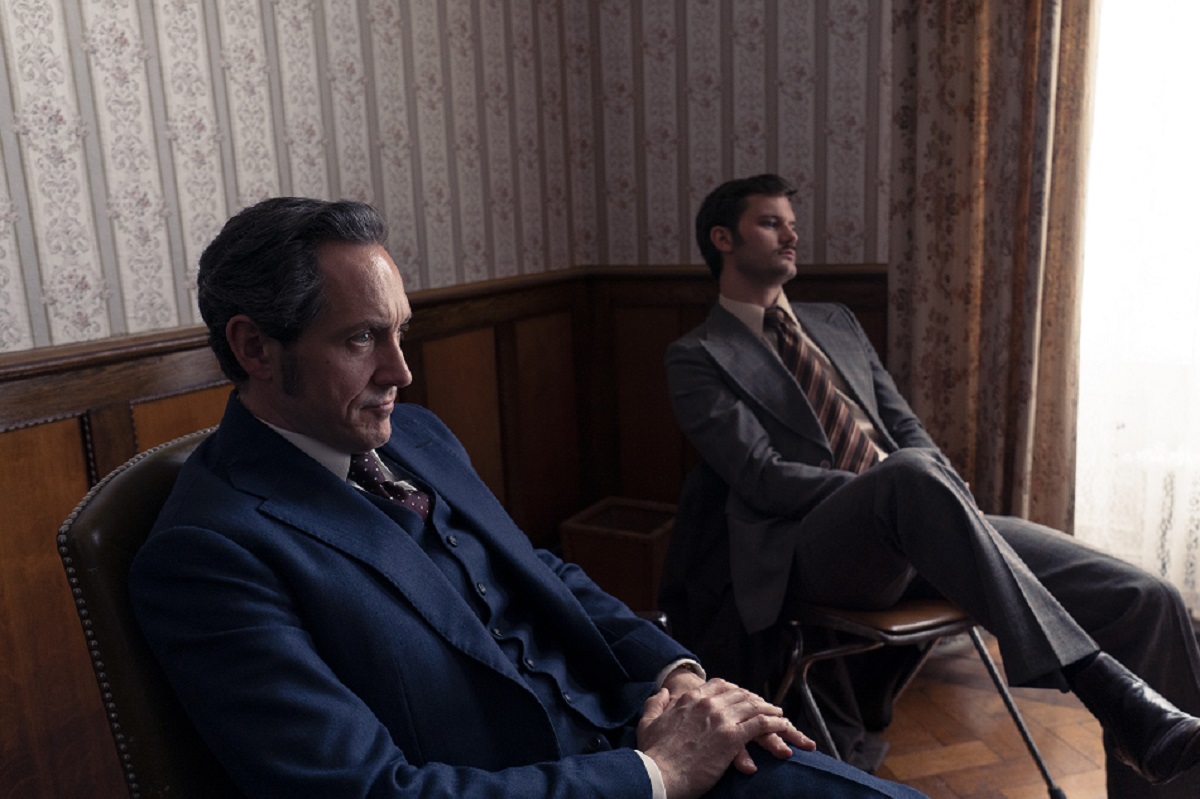
David: So for those of us who, aren't familiar with Dalgliesh, can you tell us a little bit about the show?
Bertie: Based on the novels of PD James, Dalgliesh himself is described by Helen (who wrote the adaptation, the lead writer on series) is often inscrutable, which I love, and suggests that there's more to him than meets the eye. And I think that's rewarding given that he has the therapist's gift of leaving spaces into which people pour themselves.
So he is a quiet, still, deep pool. And he's a poet as well as a detective. And so I think a deeply compassionate, humane, insightful, perceptive man, but with a, a ruthless streak. James describes him as having a sliver of ice in the heart, which I think speaks to his kind of uncompromising pursuit of the truth at any cost -but in the service of justice.
So each story is set in quite a kind of specific locale. The first one is set at a nursing college in Hampshire that's appended to a hospital. And so this kind of sequestered environment, claustrophobic environment, populated almost entirely by young women – one of whom has been killed.
And so he kind of goes into these environments. The second story is set in a home for disabled people in a kind of rundown stately home on the south coast of England run by this sort of quasi-religious crank, who has all his staff dressed in monastic robes and sort of biblical sermons and everybody.
And the third story he goes into is set in a church actually, where two people have been found dead in apparent double murder – one of whom is a politician and the other of him is a tramp. And I think it investigates the kind of upper and lower echelons of British society and the ways in which they interrelate or don't.
So quite distinct environments, but what I was keen to do is to sort of link these stories together with a parallel story about a man who is processing grief. And he in the kind of recent pre-history of the first episode has lost his wife and child, shockingly and suddenly. And so here's somebody who is an experienced and accomplished and rather brilliant dealer in investigating death having to deal with his own inner torment and turmoil and finding himself completely ill-equipped to do so. And so I've found that kind of juxtaposition oddly poetic and quite personal and just really thrilling, so I think it's the kind of story that will reward viewers who enjoy character and who are curious about people.
One of the things that's brilliant about PD James is the way she creates worlds using these portraits of the people whose lives are touched by the murdered person. So really it's as much about the damage the crime inflicts on everybody around the person who's been killed as it is about the life that's been taken.
She talks about murder as the crime that destroys privacy and, Dalgliesh comes into each of these environments and despite his deep compassion and empathy, is really uncompromising and ruthless in the way he prosecutes the crime – kind of at any cost and it, it's like a sort of acid that corrodes the lives of everybody it touches, you know.
David: What did you do, if anything, to prepare to play such a well-loved character?
Bertie: Well I read the books and I principally pay very close attention to the scripts as they evolve through many drafts, and think about, where necessary, feedback – my thoughts on, you know, principally the, trying to figure out what the arc is.
And, I thought a lot about how to do less. I loved this description that he was inscrutable and, you know, you don't want to be so inscrutable that people don't know what's going on, right? You just, that implies that it's still waters that run deep. So I think, I guess I tried to remain available – emotionally available – and think about what's going on for him in sight and then try to do as little as possible on top of that to colour it in any way.
I'm quite fond of playing characters that are painted in quite bright colours, I suppose. And I really enjoy working with the costume designer and makeup designer always, and sort of finding my way through the shape of somebody. I think that helps me figure out their psychic shape, you know, those sort of – so I did all of that work with the costume and makeup designer, Emma and Lisa, but with a focus on trying to do as little as possible, really, and take things away rather than put things on. So it was kind of the same process, but with a very different focus to where it might otherwise have been.
You know, we did some of that exploration as well, and I sort of painted in some maybe brighter colors to see if that felt good – and then we sort of thought, “No, that's just – it's good to explore that. And let's not do that.”
And then I spoke to Jill, the director of the first block, kind of every week for a couple of months, really. We just chatted on the phone really to make sure that we had the same understanding of this story we were trying to tell. Particularly his story. I spent a lot of time talking to the executive producer Elaine, and Helen Edmondson, the writer, on the phone just to make sure we were all in sync about what we were trying to do and who we thought he was.
And yeah, in terms of him being much loved, I didn't really think about that very much. A bit of a millstone when we start thinking that there's some kind of a precedent. I mean it's, you know, those are big shoes to fill if people have imagined a character for themselves.
So I think all you can do is try to make sure that your picture of this person is extremely full and detailed and robust, and then people connect to it or they don't, but I don't think you can really start to think about trying to moved towards someone else's imagination, really – although to a certain extent, that's what we're doing in filmmaking, you know, it's a huge collaboration between hundreds of people who all have, who are all trying to imagine their way towards a single presentation when actually we've all got different imaginations and that's – that's thrilling, actually.
You know, one of the things I like most about the work is that, you know, you try to be really detailed and then someone will say something you just haven't thought of and you think, “Oh, that's really great. I'll incorporate that.” Or, “Fuck. I'm really on wrong channel sometimes.” You know? But that's great. That's what makes it exciting.
David: Yeah, very much. So sadly, PD James is no longer with us, but is there anything you wish you could ask her about the character or the world of Dalgliesh?
Bertie: Oh, wow. I mean, I suppose I'd love to know if she liked, you know – I would find it very validating to think she liked the performance. I'd also find it, probably, quite crushing if she didn't.
I dunno. I mean, about halfway through the shoot – (I got) a copy of her, she calls it a fragment of autobiography. It's really a year of her diary, I started reading that and I thought, why haven't I been reading this all the way through?
It's so insightful and tells you so much about her worldview – much of which I felt close to by then, because I'd been spending – it really encouraged me. I felt that if I had met her, that I felt I was on the right track by then, because some of the things, some of the confidence issues sharing from that diary made me think, “I think I've understood her world and her inner world.
And her relationship to spirituality, which I think, I don't know. Who am I to say – but it feels to me often with these sorts of heroes as though they're not autobiographical per se, but there's a lot of you, there's a lot of…there are certain qualities that they share with their author or maybe projected onto them and mapped on to them.
And I was really pleased to have to, you know, have that intimacy that you get from access to somebody's diary or memoir. At that stage of the shoot, I felt very supported by that. So yeah, I guess I'd like to, I'd like to ask her if she thought it was okay.
David: Poetry isn't necessarily what you'd expect as a side gig for a homicide investigator. So I was wondering, do you personally have any hobbies or interests that might surprise us?
Bertie: That's a great question. Uh, well, my hobby, when I was growing up was live role playing, which is basically running around in caves and fields dressed as a goblin or an elf attacking people with rubber weapons.
People would find that surprising. I mean, to be honest, it it's no surprise at all to me, not least because I've lived it, but you know, actually the through line from there to acting in some ways is really obvious – but at the time didn't occur to me at all and was a great surprise when I discovered that, you know, actually there was a way to get praise and money for doing this professionally.
It didn't occur to me at the time. So that was my childhood hobby – and then I don't know my hobbies now. Like I love swimming in the ponds and perhaps some kind of cold water swimming, wild swimming. That's surprising, but it definitely – yeah, it's the >>inaudible<< soothes my soul. Erm, more unusual hobbies…well, yeah, I don't really make enough time for hobbies to be honest. I need to work on that.
David: It's hard to get time for those for sure. Do you have a favorite of the three stories adapted for series one?
Bertie: No I don't. I mean, I love all my children equally. I dunno. I mean, there's something unique about each of them.
I think that there was something – I really don't want to pick one – but there's something amazing happens when you allow yourself to be surprised as an actor. And I can be quite, you know, I work very hard and I prepare very, in a very detailed way. I sometimes think that I try too hard to control my performance and something happened in the middle film.
Partly I think it was answering something that's happening in Adam. Partly it was just allowing myself to be surprised by the amazing actors I was working with. I found myself very caught, very much off guard in a very beautiful way – and that was totally right for the scenes and the stories, but it was not at all what I had planned or imagined, and that I found very moving and very – because it's about grief and it's about, you know, my own experience of grief is that, you know, one tries to answer it or process it or control it or do something to it, but actually the process of healing is more about things that happen to you and a deepening…it's something that happens with time and not action.
And there was something that happened, you know, little things that you know, would mean nothing. Well, it would be banal if I told you, but like there was something that happened in that stage of the shoot that I thought was profound, both in terms of the way I felt quite deeply, but also that it seemed to me about right, for where he was in his journey that something's starting to open up again, that had been quite tightly gripped and tightly controlled. And that was very moving to me on a personal level.
I think that really gave me strength to finish the rest of the shoot, which was demanding – as it always is – but, you know, particularly because we were working with the COVID and yeah…I mean, I'm really proud of it. It was very, it was a very emotionally demanding experience playing this part in a way that I'm proud of.
But yeah, it helped me get over that hump in every sense and feel like I'm doing something good here. I think I'm doing it justice, but it happened to me. You know what I mean? I didn't it was something I was doing and it was really because of the other actors. It was because I was really allowing myself to be moved by them.
And I really was moved by them and yeah, it just felt very profound actually. So that was a special thing.
Watch Dalgliesh on Acorn TV
If you haven't already checked out Dalgliesh on Acorn TV, we strongly recommend giving it a watch. “Classic” mysteries are relatively few in number these days, with most new mysteries either skewing to the silly, cosy end of the spectrum or the excessively dark and moody side of things. Both can be pleasant, but it's nice to see one that's serious without being excessively gritty and violent.
Have you watched? Will you? Feel free to share your thoughts in the comments!
